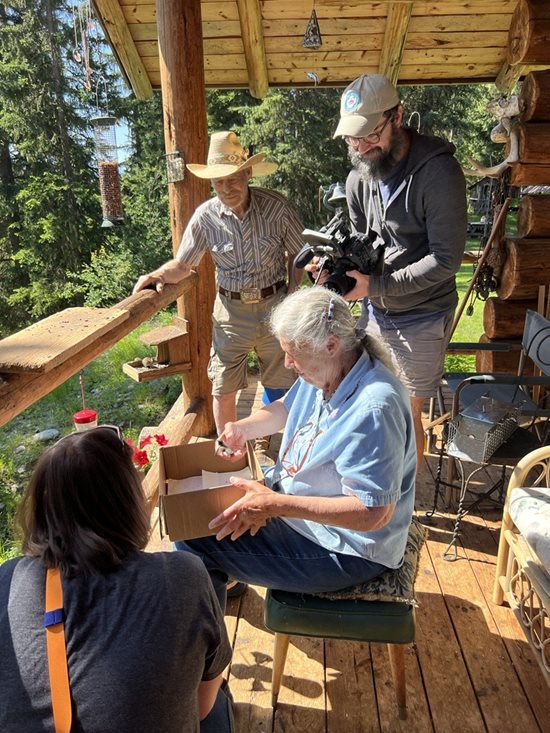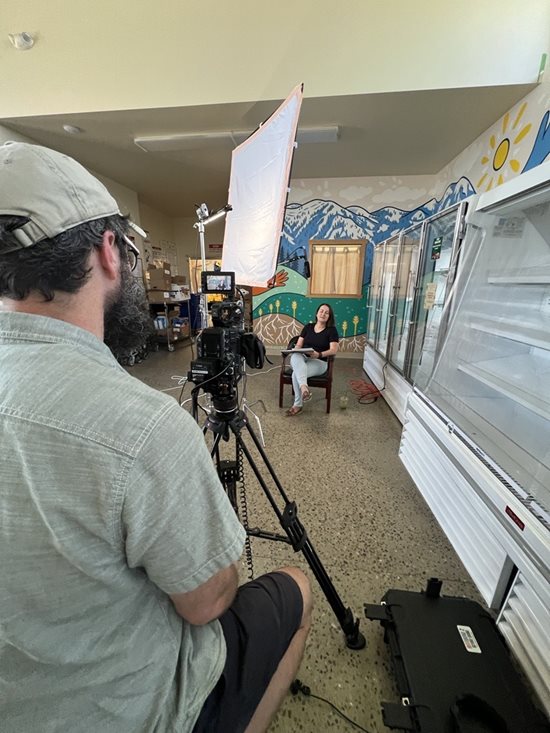Challenging food insecurity…even when times are tough
One of the most valuable and unique strengths of Northwestern Montana is the sense of community. Acceptance, support, finding dreams, and then chasing them. The freedom to live peacefully and within a community committed to each other, to raise families and work, to create art, and to sing and enjoy the breathtaking beauty of where we live.
And eating is a big part of that, too.
“I believe it’s a basic human right to have access to fresh, good, and healthy food.”
But there are many people in Montana going hungry. They don’t have enough to eat or not enough money to either purchase the food to survive or to access nutritious food.
The numbers are grim. According to state statistics, thirty of Montana’s fifty-six counties (more than half) are considered food deserts. That means it’s difficult for the folks who live there to access affordable and/or fresh food. Often, the food that is available is not considered “healthy” by nutritional standards. Hunger Free estimates that 115,000 Montanans (1 out of every 10 residents) can’t always afford food, that one in seven children lives in a home that struggles with food insecurity…and it’s getting worse.
So, community initiatives like the North Valley Food Bank are doing everything within their power to make sure that folks in Montana have access to healthy, nutritious food—even when they can’t afford it.
The cost of living has gone up, but there are still many communities and individuals struggling to simply pay their bills and keep a roof over their heads.

“Yeah, food banks across the country have seen a dramatic, skyrocketing increase in the need for food assistance over the last couple of years,” admits Sophie Albert, the executive director of North Valley Food Bank.
The cost of living has gone up, but there are still many communities and individuals struggling to simply pay their bills and keep a roof over their heads. From where Albert is standing, the increased demand was inevitable, given the fragile balance many people were struggling to keep in check. “I think the Covid-19 pandemic really brought out systemic issues that already existed. People were living from paycheck to paycheck. But since, unfortunately, we haven’t seen a decline. We have just seen a further increase [in demand], and some of the rural communities don’t have as much support. There’s a much larger need in those communities.”
For some folks in rural Montana, the drive to a grocery store is between forty and sixty miles. It’s simply not feasible for them to quickly duck out to the store several times a week to replenish fresh produce without a significant time (and gas) commitment. “We have an abundance of food that comes to us here in Whitefish and our food bank, but if we really look at providing equitable food assistance to our communities, we also have to include our rural neighbors,” says Albert. “I mean, I think the Yaak is a good example of a real food desert, where the local grocery store is 40-plus miles away.”

Nestled deep in the Kootenai National Forest in Northwestern Montana is the wild Yaak, a landscape of dense trees and crystal-clear rivers teeming with wildlife. It is as vibrant and fresh and breathtakingly beautiful as anything you can imagine. And some of the people who live there are going hungry. “People in the Yaak are wonderful community members. I think I’ll let them speak for themselves on why they’re there and what they’re doing in the Yaak,” Albert laughs.
“Everybody pretty much knows each other and kinda looks out for each other—even if they don’t agree on certain topics or issues,” says Yaak food pantry volunteer Brad with a chuckle. “The loggers didn’t like the hippies, you know, and the hippies didn’t like the loggers, and the church people thought they were both sinners.”
But it’s not just the rural communities who are suffering from access to affordable food or folks who are unemployed or young. Sometimes, it’s as simple as recognizing it in the people living—and working in your community. It doesn’t always occur to us that people with full-time jobs are always struggling with food insecurity or facing the challenge of finding affordable, fresh, and nutritious food to feed their families…and children.
“So Whitefish is considered, I would say, a wealthy community,” points out Albert. “We’re a ski resort town. Tourists come to visit the park in the summer, to go skiing in the winter, and it’s a beautiful, picturesque town. I don’t think anybody’s arriving in Whitefish to come on vacation and thinks about food insecurity in this town. Yeah, but there’s a lot of workers in town who serve you at the restaurant, who provide groceries, and all those people can’t afford living in this town anymore. And I think we have seen that in ski towns and resort towns across the country.”
Now, the North Valley Food Bank is doing even more to combat food insecurity. Aside from working with local food banks in rural communities and in cities and towns in Northwest Montana, they’ve gone one step further in a bold plan: they’ve opened a free grocery store.
“We are sitting in our free grocery store here at the North Valley Food Back in Whitefish, Montana,” says Albert. “We have set up a choice model grocery store so people come in, they shop for their own food, they pick what they want. There’s no limits on how much people can take. There’s no limits on what they can take. They shop their way. We provide samples just like at Costco.”

There’s no questions, there’s no judgment. There is just the sense of support and community.
There’s no questions, there’s no judgment. There is just the sense of support and community. The idea is simple, and yet somehow seems radical in its simplicity: create food security by opening a shop. The only difference is that it’s free.
And for those who are struggling to be able to eat, that goes a long, long way in easing the anxiety and shame of having to turn to assistance. Because often, it’s not as simple as just entering a grocery store and being invited to shop without looks and whispered judgment.
“When my wife and I first got married, we had to go to a food bank,” says Brad, “and we knew what that experience was, and we said, ‘There is no way—no way—that we’re going to have anybody come to our food bank and feel bad about it, right?” Even now, decades later, his voice shakes.

It’s this distinct sense of simply being available to the community members who need them that changes a person’s life. Change their mindset and their direction. When you’re not simply focused on finding your next meal or planning how you’re going to feed your family in the coming weeks, you can focus on other important things, like paying your bills, keeping your home, and creating new opportunities for yourself and even your family.
We’ve seen how quickly things can change in the world, how swift and unexpected those sweeping changes can be, and those who don’t have the means to weather it find themselves most vulnerable. But this is a community unwilling to leave anyone behind, whether that’s one person who creates a legacy of community assistance (such as June Munski-Feenan, the original founder of the North Valley Food Bank)…or the businesses and organizations who offer continued support and raise up those initiatives.
Whitefish Credit Union doesn’t just help people and business reach their goals, their projects, or even their dreams. They’re working to support organizations like the North Valley Food Bank and its goal of building food security within both their urban and rural communities. Because it’s not just about ensuring that everyone has the same opportunities—sometimes it’s about ensuring that those folks who don’t have access to everything they need to flourish and survive find more stable footing. And access to food is a necessary and fundamental need.
“I believe it’s a basic human right to have access to fresh, good, and healthy food,” says Albert.
But for now, there’s still work to do, and for Albert, that means looking to the future. “For our rural pantries, I would love to see them develop almost in the same way as the North Valley Food Bank developed—from a little garage, working together. I would love for them to collaborate across Lincoln County together, work together, build systems, address the stigma around accessing public benefits.”
And that begins with just the simple act of working for the community…and opening a grocery store for those who need it most.
For members like you.
Because what we do pays dividends
